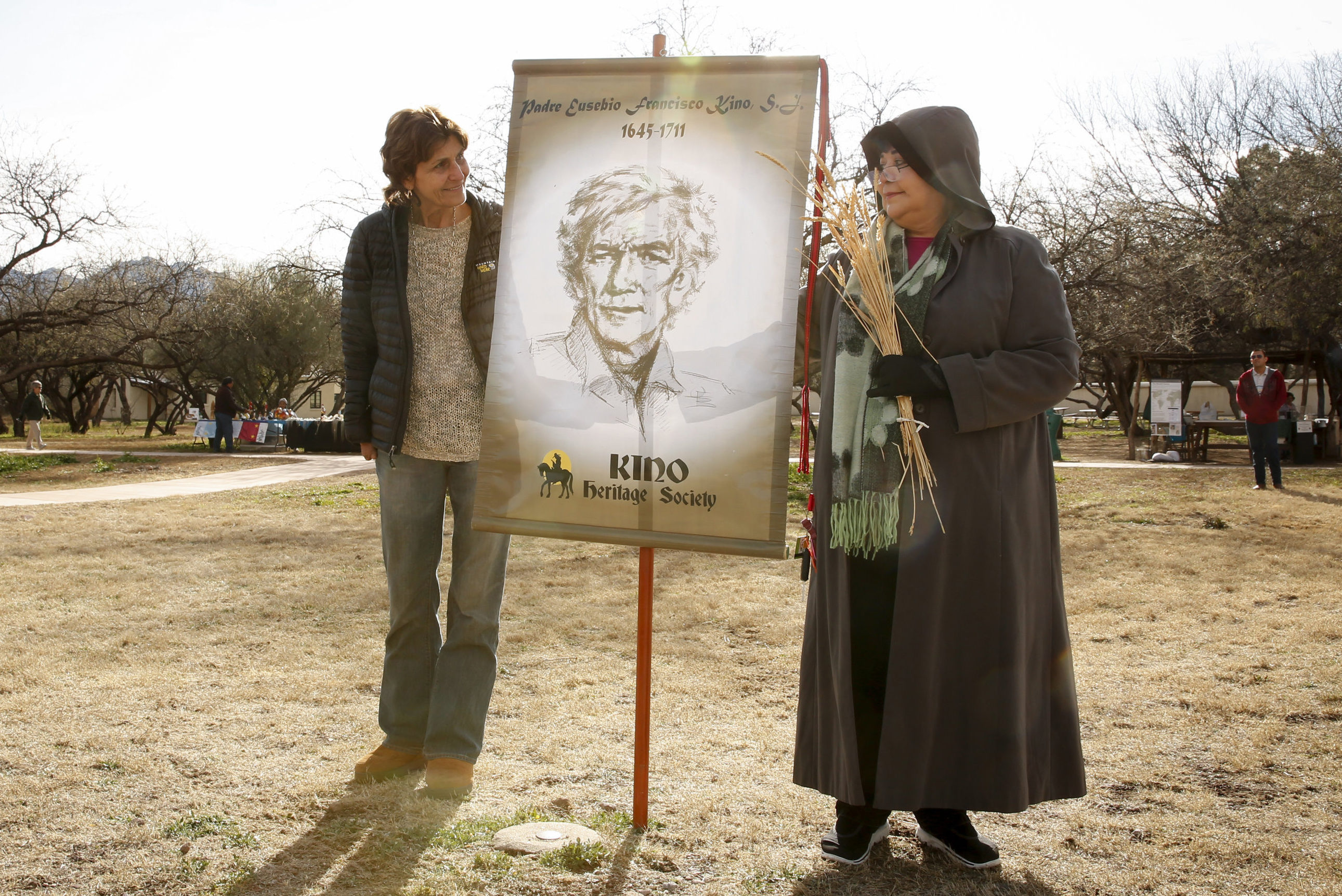
By Junno Arocho Esteves
Catholic News Service
VATICAN CITY (CNS) — A former slave who spent her days caring for the poor and a Jesuit missionary and cartographer who ministered to indigenous people in California and Arizona are historic examples of America’s relatively unknown missionaries of mercy.
Julia Greeley and Jesuit Father Eusebio Kino, the namesake for the Diocese of Phoenix’s Kino Catechetical Institute, were praised as models of mercy at a conference at the Vatican sponsored by the Archdiocese of Denver and the Pontifical Commission for Latin America Sept. 24.
The conference also honored the lives of Venerable Franciscan Father Antonio Margil de Jesus, a missionary who evangelized North and Central America and Venerable Father Michael McGivney, the founder of the Knights of Columbus, who also dedicated his life to helping immigrant families in the late 1800s.
Their lives and memory “challenge us all” and represent “some of the most significant missionary testimonies of mercy” that contributed to evangelization, said Guzman Carriquiry, secretary of the Pontifical Commission for Latin America.
“Let us allow ourselves to be accompanied by them, to learn from them, to trust in their intercession to become ourselves missionary witnesses of mercy,” Carriquiry said.
Jonathan Reyes, executive director of the U.S. Bishops’ Department of Justice, Peace and Human Development, said Fr. Kino exemplified love and mercy through his travels around the southwestern United States.
Known as “the padre on horseback,” Fr. Kino is believed to have traveled roughly 50,000 miles and became the first to map Pimeria Alta (an area that now includes southern Arizona and Sonora in northern Mexico), the Gulf of California and Baja California. He also established 24 missions.
However, despite his achievements as a cartographer, mathematician and agriculturalist, Fr. Kino, was “first and foremost a zealous priest and a faithful preacher of the Gospel,” Reyes said. “At the center of his life and the source of his almost unbelievable amount of labor and accomplishment was Fr. Kino’s burning desire to know Christ Jesus and to make him loved.”
Born into slavery in Missouri in the 1840s, Julia Greeley gained her freedom after the Civil War and worked as a nanny. She moved to Denver where she was employed to care for the children of William Gilpin, the first territorial governor of Colorado.
Known for her love of children and the poor, Greeley was also a known for her piety, often passing out prayer card devotions to the Sacred Heart.
Despite working long hours taking care of children, cooking and cleaning, she would often be seen walking at night through the streets of Denver pulling a small wagon of food and supplies, which she would deliver to poor families.
“All of this is evidence of a beautiful life. All of this is evidence of a saintly life,” said Martha Reichert, president of Endow, an apostolate dedicated to educating Catholic women and girls.
Reichert said the life of Julia Greeley shares “a striking connection” with the Holy Year and is an example of the “enduring power of mercy.” Despite her sufferings at the hands of white people, Greeley held no grudge, Reichert said, and she went out of her way to help all poor people, no matter what their race.
Archbishop Samuel J. Aquila of Denver said the lives of witnesses like Greeley and Fr. Kino give Christians a “glimpse of the face of Christ” and “exemplify virtues that are needed in a world that is hostile to faith.”
Their lives, he added, prove that “we can be saints,” and that with God’s mercy people become “brothers and sisters and not just neighbors.”






